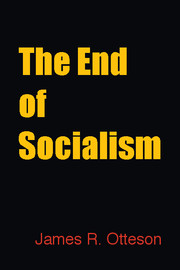1 - What Socialism and Capitalism Are
Published online by Cambridge University Press: 05 October 2014
Summary
Introduction
The place to begin any systematic discussion of capitalism and socialism is by specifying what we mean by the terms. Each has meant different things to different people, and each of them has considerable baggage—mostly negative. Today, the term “capitalist” is usually meant as a pejorative epithet, carrying with it the connotation that someone is greedy and selfish, uncaring toward others, and probably indifferent (or worse) toward values such as fairness and equality. Similarly, being a “socialist” means allying oneself with unrealistic utopian schemes and failed or dictatorial political experiments.
Yet two recent events have thrust both terms back into public discussion: the election of Barack Obama as president of the United States in 2008 and the global economic recession that began around the same time. President Obama’s election has brought with it numerous claims not only that he himself is a (perhaps closet) socialist, but also that his policies, while nominally liberal, are really socialist at heart. Those who claim this do not mean it as a compliment. And the global recession is seen by many as a failure—and thus an indictment—of capitalism, perhaps even its death knell. Both sets of claims, as well as responses and counterclaims, are easy to find. They are often unproductive, however, in part because people mean so many different things by the terms they use. Yet there can be little hope of fruitful discussion, much less unity, if people cannot agree on the definitions of the central terms they use.
- Type
- Chapter
- Information
- The End of Socialism , pp. 1 - 18Publisher: Cambridge University PressPrint publication year: 2014



